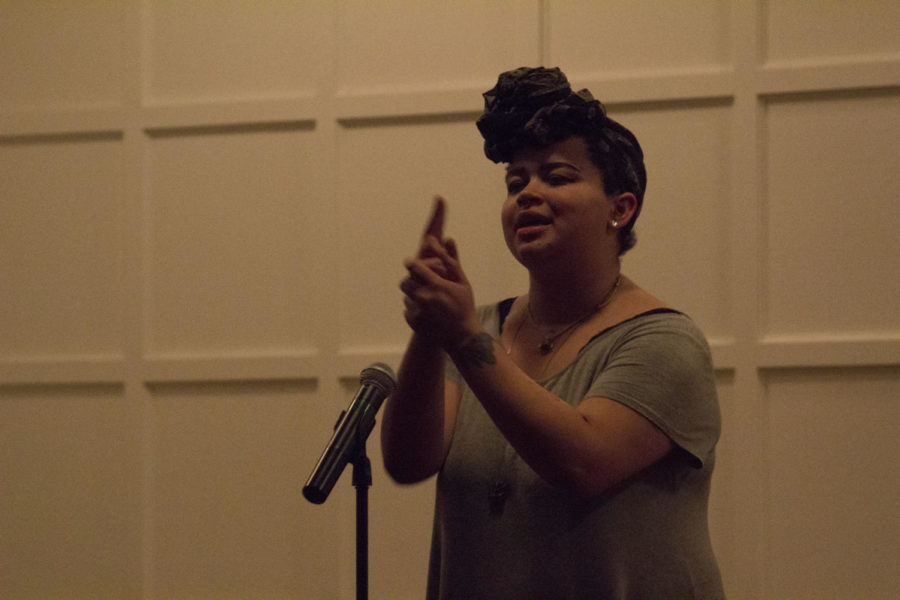Students incite truth through poetry
March 9, 2020
A group on campus focuses on bringing truth to campus.
Student Poets Inciting Truth (SPIT) is a platform for Iowa State students to “share their narrative, discuss community issues and influence their campus through poetry and performance,” according to the Student Organization website.
SPIT provides a safe, creative space in which student poets at Iowa State can write, receive feedback and edit their pieces, according to the Student Organization website.
“The mission of this organization is to create a platform for Iowa State and Ames students to discuss community issues, share their narrative and influence their campus, city and state through the medium of poetry and performance,” according to the SPIT Constitution. “The main principles of SPIT are honesty, dynamic empowerment and community, and the main mode for expressing these narratives and principles shall be through community performances, outreach and poetry slams.”
SPIT has meetings from 6-7 p.m. every other Thursday. These weekly meetings are workshops and are planned by club officers in which there is a theme for activities and writing prompts to aid in the creative process and give club members a creative focus. Workshops are also a share time where club members can receive feedback and direction from their peers.
Besides meetings, the club also hosts performances throughout the year. One or two performances are planned for both semesters to aid in group fundraising and to raise money for different Ames charity organizations. An end-of-semester slam is also planned for both semesters in which club members can compete against each other for a cash prize, raised through dues and slam entrance fees.
Membership of SPIT is open to both Iowa State students and community members, and the current number of student members is 13.
This student organization allows students to speak their truth but also form a sort of literary activism.
“Literary activism, to me, looks like opportunity,” said Samiya Bashir, an African-American/Somali-American poet, in a post on the Poetry Foundation website. “Looks like loving attention, like curiosity, like inquiry. Looks like the supportive sharing of eyes, ears, hands, minds, hearts and tools. Looks like being willing to be wrong, to be outdated, to be educated, to learn something new from someone different and strange. There are so many important voices who never get the chance to find their greatness, shut down as they are by the insistence upon a dominant aesthetic even when we all know that mimicry can be deadly.”
Poetry is defined as writing that formulates a concentrated imaginative awareness of experience in language chosen and arranged to create a specific emotional response through meaning, sound and rhythm, according to the Merriam-Webster dictionary.
“Of my own medium, poetry, I have much hope, despite the ongoing attempt to colonize and capitalize its very existence via white supremacist tendencies in the academy and mainstream publishing world especially,” said Amy King, an American poet, in a post on the Poetry Foundation website. “Poetry has been a vehicle unmarried, so far, to any ultimate “official” authoritarian definition, and therefore, it retains its powers of vastness, affordability and adaptability. It is the spearhead of language as it pierces, points out and pivots at the bequest of many.
“Poetry continues to enjoy one of the more remote luxuries of disregarding monetized allegiances, at least as the least popular and packageable medium, which is why you’ll find numerous poets in the vanguard of articulating the least popular but most transgressive and challenging ideas going in any given period, including the present.”







